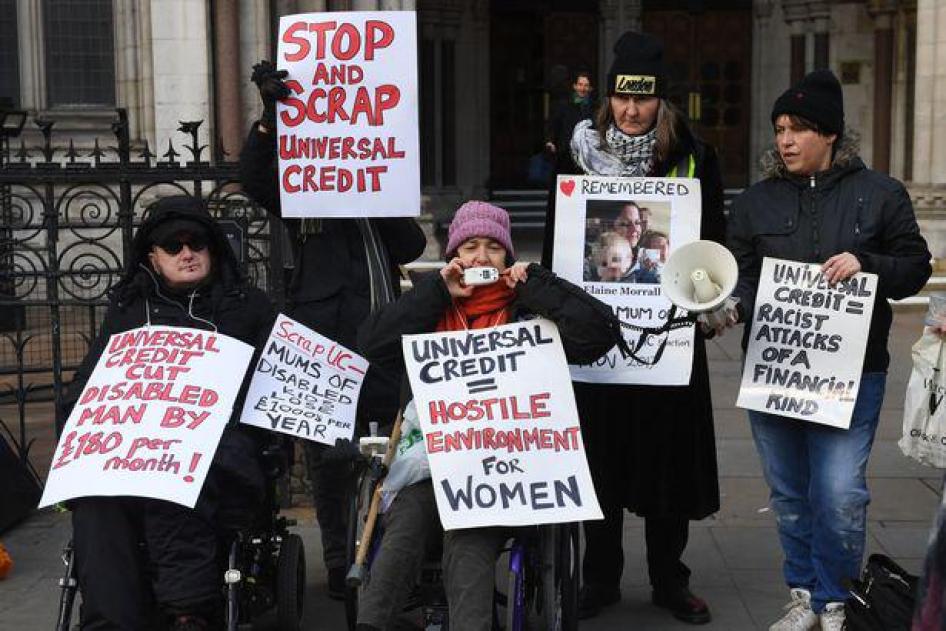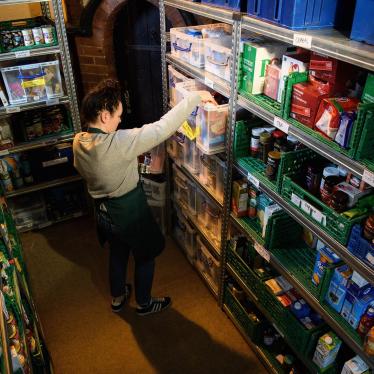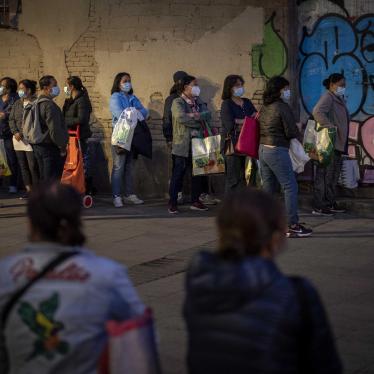The UK government has embarked on an ambitious strategy to digitise and automate the delivery of welfare services, but misplaced reliance on these technologies is threatening to further unravel the social safety net.
Last month, the United Nations expert on poverty and human rights and Human Rights Watch published their respective findings on the state of poverty in the UK, documenting the toll of austerity policies on the rights of the poorest people in British society. The UN report, written by Professor Philip Alston, warned in particular that the “British welfare state is gradually disappearing behind a webpage and an algorithm.”
The country’s transition to digital welfare is closely linked to its austerity-motivated efforts to slash spending on welfare and other essential public services, while at the same time fundamentally restructuring the social security system. In 2012, the government created Universal Credit, which consolidated six social security benefits into a single benefit paid monthly.
Universal Credit is designed to be “digital-by-default”: most beneficiaries are expected to apply for and manage their benefits through an online portal, and offline means of obtaining benefits have been pared back. The Department of Work and Pensions, which oversees Universal Credit, has claimed that the online delivery of benefits would make them “easier to access” and “cheaper to provide.”
In practice, however, the rollout of Universal Credit reveals a mismatch between the government’s digital aspirations and the rights of some of the country’s most vulnerable people. The UN report found that many claimants who lack digital literacy skills or cannot afford internet access at home experience difficulties claiming their benefits online. The burgeoning demand for digital assistance with Universal Credit has transformed public libraries, which provide free computer services, into makeshift crisis centres – a role they are ill-equipped to undertake in light of staff shortages and their own budget cuts.
The government’s official oversight and audit body has raised serious questions about whether this system in fact saves money or costs more, and whether the government has provided adequate support to local authorities helping people obtain their benefits. This isn’t news to the government: parliamentarians and local government representatives have consistently flagged that the resources to support a “digital by default” system are not adequate.
The drive to automate critical aspects of Universal Credit has heightened the risk that people might be wrongly denied essential benefits. As of March 2018, only 38% of welfare claimants had been successfully verified under the government’s initiative to automate identity checks through services provided by the private sector. These services depend on information such as financial and phone records and immigration documents. But public assistance groups have found that many claimants lack such documentation or struggle to provide it online.
Errors in the automated processing of benefits have also sowed confusion and financial hardship among claimants. Late or incorrect payroll information provided by their employers has caused delays and reductions in benefit payments, which can take weeks to rectify. These errors are potentially catastrophic for claimants already struggling to feed their children and make ends meet. Although the government has proposed policy changes to fix these errors, it has admitted that it does not know “how this will work in practice.”
The UK is not alone in its struggles with digital welfare. A growing number of countries have botched similar efforts. In India, millions of poor families have been denied food rations because they were unable to satisfy digital identification requirements. When municipal governments in the United States and Canada replaced caseworkers with automated systems to process welfare claims, the underpayment and denial of benefits surged. Thousands of welfare claimants were wrongly accused of benefits fraud in Michigan because of design flaws in the state’s automated fraud detection system.
In the UK, these failures are increasing the strain on welfare claimants, who are already suffering from sanctions for falling short of work requirements and from reductions in their benefits over the last decade.
Despite these red flags, the government is pressing on with its digital transformation of the welfare system. A “fully automated” system for detecting fraud is also in the works. If the government does not first resolve ongoing failures with the technologies it has already rolled out, it risks repeating them. These upgrades should also not distract from the urgent task of re-evaluating the underlying premises of Universal Credit, and the slew of benefit caps, freezes and penalties enacted in its name.
Without welfare reform that addresses the root causes of poverty, hunger and homelessness, automation and other technologies may only serve to exacerbate their effects.








